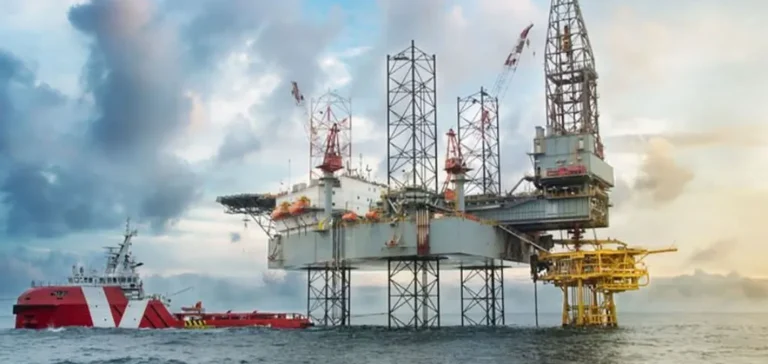Launched off the coast of Sèmè-Kraké, the redevelopment of the Sèmè oil field marks a notable step in Benin’s energy strategy. Inactive since 1998, this site had produced nearly 22 million barrels before its closure. The company Akrake Petroleum, a subsidiary of Rex International Holding, resumed work through a planned 120-day drilling campaign, initiated after the lease of a mobile rig.
The project brings together three main stakeholders: Akrake Petroleum holds a 76% interest in the block, compared with 15% for the Beninese State and 9% for Octogone Trading. The immediate objective is to drill three additional wells while installing a production unit and a floating storage platform. The overall infrastructure is designed to ensure the processing and storage of oil directly at sea.
Benin’s return to the circle of producers
The revival of the Sèmè field is part of a clear political ambition expressed by the Beninese authorities. In October, the Minister of Water and Mines, Samou Séïdou Adambi, announced that the government intended to support the operations to launch a new phase of deep offshore extraction. This orientation aims to reduce the country’s energy dependence and to secure new sources of international revenue.
According to operational forecasts, production could reach around 15,000 barrels per day once commissioned, expected by the end of the year. At the same time, data collected during the drilling phase will help assess the potential of deeper geological layers, which could extend the lifespan of the field.
Medium-term exploitation outlook
The assessment of additional layers represents a strategic variable for the entire project. If results prove consistent with expectations, a new phase of technical investments could be considered. This would potentially include strengthening production capacity and adapting logistical infrastructures.
The return to exploitation of the Sèmè field places Benin in a more active position on the regional oil scene, while several Gulf of Guinea countries are also multiplying initiatives to optimize their offshore resources. It remains to be seen how extracted volumes will evolve and what impact they may have on the country’s macroeconomic balances.






















